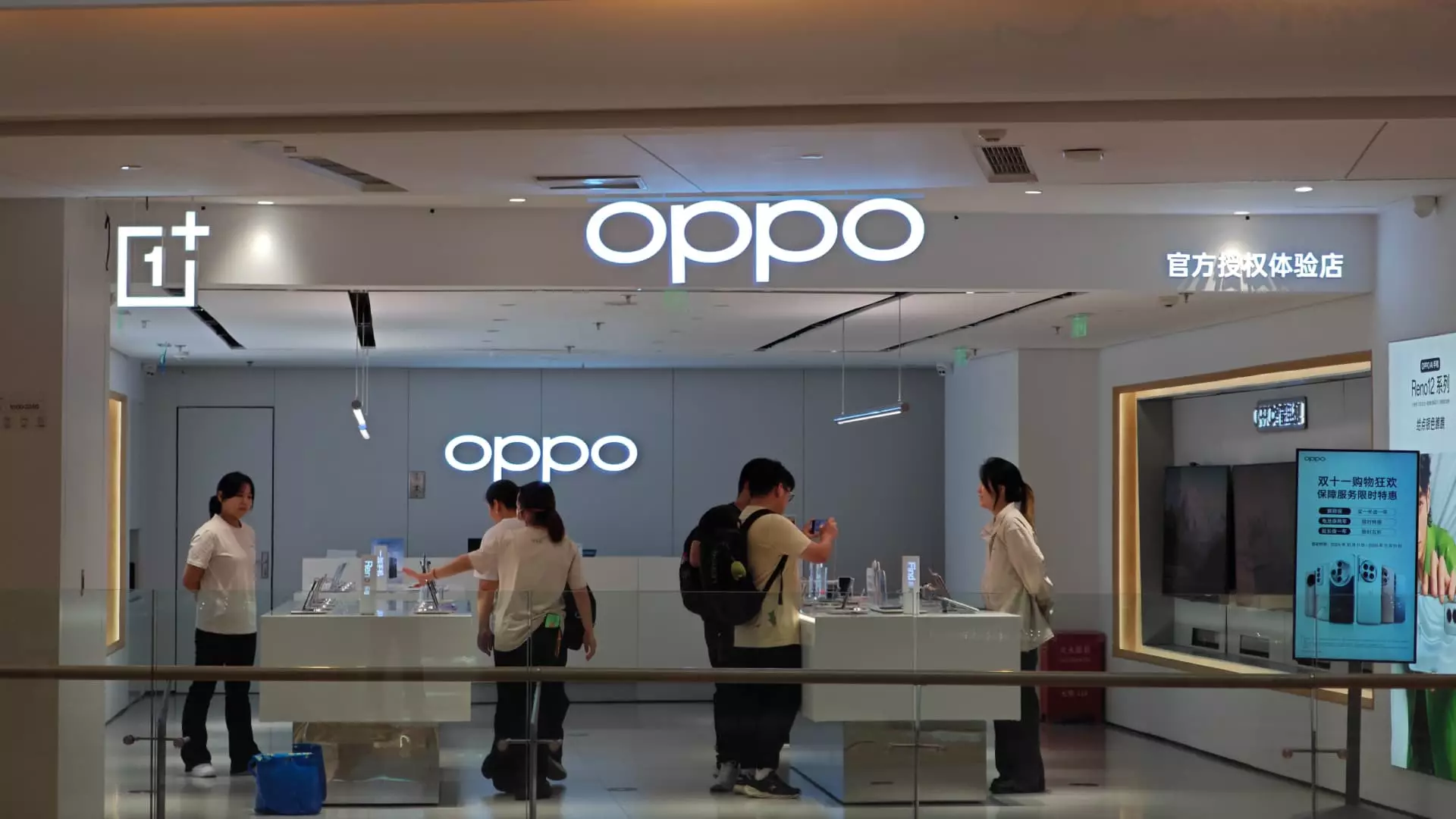In the rapidly evolving landscape of smartphone technology, artificial intelligence (AI) has emerged as a game-changer, with companies scrambling to harness its potential. A shining example of this trend is the Chinese smartphone giant Oppo, which is intensifying its AI initiatives as it prepares to launch its flagship phone in international markets. By engaging in collaborative discussions with tech behemoths like Google and Microsoft, Oppo aims to harness the capabilities of generative AI and integrate them into its products. This strategic focus not only underscores the growing significance of AI in consumer electronics but also highlights the competitive race among leading tech companies to capitalize on generative AI applications.
Oppo’s management is actively participating in weekly discussions with senior executives from both Google and Microsoft. These collaborative sessions signify a concerted effort to identify and address consumer needs within the AI sphere. As noted by Billy Zhang, president of Oppo’s overseas market sales and services, these partnerships are aimed at co-developing solutions that can enhance Oppo products’ user experience. The proactive approach emphasizes Oppo’s understanding of consumer demands and its commitment to leveraging AI to meet those demands effectively.
While the discussions with Google focus on product-related challenges, Zhang’s insights reveal Oppo’s strategy for leveraging AI capabilities for enhanced consumer engagement. By deploying AI tools that can generate human-like responses, Oppo is not only enhancing the functionality of its devices but also aiming to transform the user experience significantly.
Oppo currently holds a notable market position, ranking fourth globally in smartphone shipments in the third quarter of 2023, responsible for approximately 9% of all shipped units. This accomplishment is particularly impressive considering the competitive landscape, dominated by Samsung and Apple. While Oppo has enjoyed success in various overseas markets, including Southeast Asia and Europe—where 60% of its revenue is derived—it remains cautious about entering the U.S. market in the immediate future. This strategic focus on specific international markets allows Oppo to concentrate its efforts where growth opportunities seem most promising, even amidst challenges such as U.S. chip export restrictions.
As the company gears up for the launch of its flagship smartphone, it is worth noting the planned inclusion of advanced features powered by AI, such as content generation from Microsoft and writing tools from Google. These innovative integrations indicate Oppo’s determination to equip its devices with cutting-edge technology while also raising questions about the competitive edge Chinese companies might have in the consumer AI applications arena.
Oppo’s commitment to AI extends beyond product development. The company has initiated an ambitious plan to integrate generative AI into 50 million of its devices within the year. Some existing AI functionalities allow users to touch up photos and even engage with a chatbot reminiscent of ChatGPT. Furthermore, Oppo has established its AI center and has been developing proprietary AI models since 2020, showcasing the brand’s dedication to not only adopting but also innovating within the AI realm.
This technical advancement is poised to revolutionize production processes as well. For instance, Zhang highlighted how AI is being integrated into Oppo’s factories, enhancing quality control, reducing costs, and increasing efficiency. This operational strategy has already allowed Oppo to replace a portion of its workforce with machines, optimizing labor allocation towards more complex manufacturing processes. As a result, the company has streamlined its production timeline significantly, cutting it from 16 days to just six. Such progress underscores the profound impact that technological advancements, including AI, are having on production capabilities across industries.
The Broader Landscape of AI in Technology
As Oppo embarks on this transformative journey, it finds itself interspersed with other tech giants aiming to integrate AI within their platforms. The momentum surrounding generative AI is palpable, as evidenced by predictions that shipments of AI-enabled smartphones will skyrocket from 46 million last year to an estimated 732 million by 2028. Additionally, competitors such as Apple are also gearing up to unveil AI-driven features in their upcoming software updates, emphasizing the pressing need for innovation in this domain.
Moreover, talents from different sectors are converging, fostering partnerships like Honeywell’s collaboration with Google’s Gemini to create AI assistants for industrial applications. These developments signify the vast potential that AI holds in not just consumer technology but also in enhancing operational effectiveness across various industries.
The future of smartphone technology is undoubtedly being shaped by AI, with companies like Oppo leading the way through strategic partnerships, innovative product offerings, and a focus on operational efficiency. As the race for AI supremacy heats up, the landscape of consumer electronics is set for dramatic evolution, promising a host of features and capabilities that were once the stuff of science fiction. If Oppo’s optimistic outlook on AI holds true, the company is well-positioned to carve out a substantial niche in this burgeoning sector, fostering an era of smarter, more responsive technology for users worldwide.

